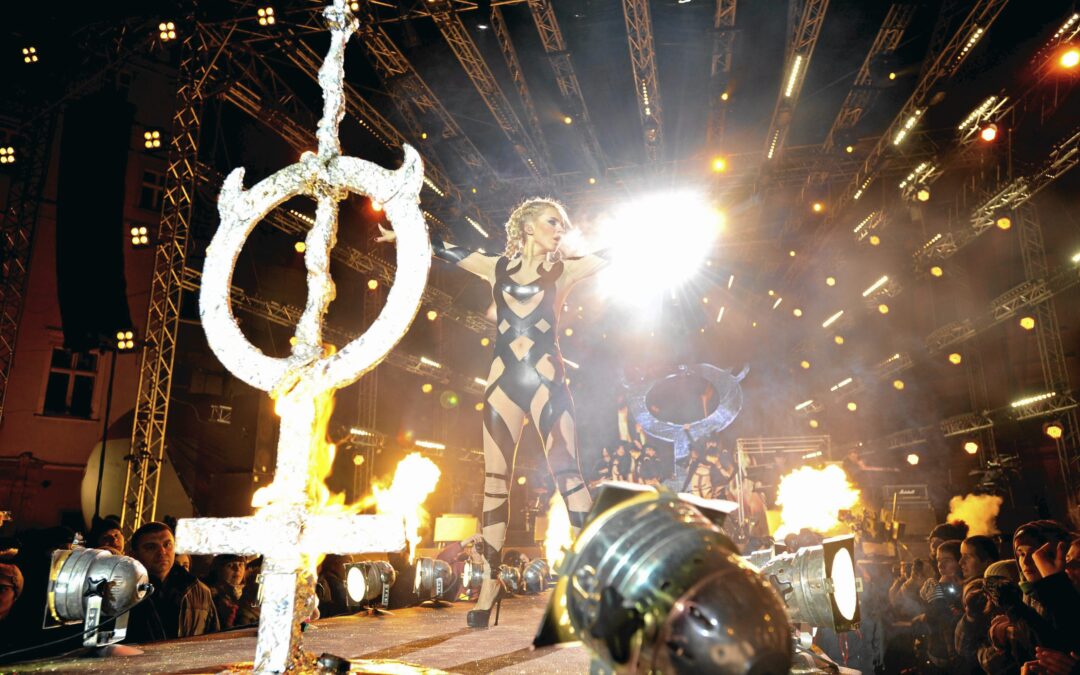The blasphemy conviction of Polish pop star Dorota Rabczewska – who goes under the stage name Doda – for insulting the feeling of Christians violated her right to freedom of expression, the European Court of Human Rights (ECtHR) has ruled.
In 2009, Rabczewska gave a press interview in which she said that it was “difficult to believe in” the Bible as it was “written by someone wasted from drinking wine and smoking weed”.
Consequently, two individuals complained that she had offended their religious feelings, a crime in Poland that can carry up to two years in prison. Prosecutors took up the case and Rabczewska was eventually found guilty by a Warsaw court in 2012 and fined 5,000 zloty (€1,160).
Her subsequent appeals were rejected, including by Poland’s highest constitutional court, which in 2015 dismissed a complaint by Rabczewska that the blasphemy law violated the constitutional rights to freedom of expression and equal treatment of non-believers.
In 2013, the pop star also referred her case to the ECtHR, arguing that the decision to prosecute her under criminal law and to give her such a large fine – 50 times the statutory minimum – violated her right to freedom of expression under Article 10 of the European Convention on Human Rights (ECHR).
Her case was supported in the proceedings by Article 19, a London-based human rights organisation that defends and promotes free speech, and opposed by Ordo Iuris, a Polish conservative legal group.
In a ruling issued today, the ECtHR found that, while Rabczewska had made “statements which could shock or disturb some people”, they were protected under the ECHR as “they did not incite to hatred or religious intolerance”.
Judgment Rabczewska v. Poland – Polish popstar’s conviction for blasphemy https://t.co/qji8fX0YYF#ECHR #CEDH #ECHRpress pic.twitter.com/BPCbj3J8Cy
— ECHR CEDH (@ECHR_CEDH) September 15, 2022
The European court also found that Poland’s domestic courts had “failed to comprehensively assess the wider context” of Rabczewska’s remarks, which had been “made in reply to questions about her private life, in a frivolous and colourful language intended to spark her young audience’s interest”.
“The [Polish] courts failed to identify and carefully weigh the competing interests at stake, namely her right to freedom of expression, against the rights of others to have their religious feelings protected and religious peace preserved in the society,” wrote the ECtHR.
The European court’s ruling was supported by six of the seven judges assessing the case. The one dissenting opinion was from Krzysztof Wojtyczek, the panel’s sole Polish member. The ECtHR ordered Poland to pay Rabczewska €10,000 in damages.
Poland’s blasphemy law has drawn increasing attention in recent years as its use has grown under the rule of the current national-conservative government. Among those to be indicted is another musician, Adam “Nergal” Darski, who was Rabczewska’s partner at the time she made her remarks about the Bible.
While some have called for the removal or softening of the law on offending religious feelings, a junior party in Poland’s ruling coalition this year launched a campaign to make it even stricter by allowing anyone who “publicly insults the church” or interrupts mass to be jailed for up to three years.
The blasphemy law is among a wide range of so-called “insult laws” in Poland, which stipulate potential jail terms for crimes including insulting the president, humiliating constitutional organs of state, insulting the Polish nation or state, and insulting a symbol of the state.
Main image credit: LUKASZ GIZA / Agencja Wyborcza.pl

Daniel Tilles is editor-in-chief of Notes from Poland. He has written on Polish affairs for a wide range of publications, including Foreign Policy, POLITICO Europe, EUobserver and Dziennik Gazeta Prawna.




















